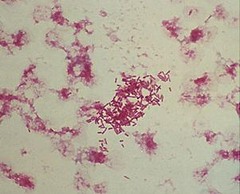Gut Bacteria Linked to Depression: A New Perspective on Mental Health

Recent research conducted by scientists from Harvard Medical School and the Broad Institute has unveiled a potentially revolutionary link between gut bacteria and depression, suggesting that certain gut microbes may play a direct role in mental health issues rather than solely brain-related disorders. The study, published in the Journal of the American Chemical Society on June 12, 2025, specifically investigates the bacterium Morganella morganii, which has been previously associated with various health conditions including major depressive disorder, type 2 diabetes, and inflammatory bowel disease.
The researchers aimed to determine the molecular mechanisms behind the connection between the gut microbiome and depression. Their investigation revealed that M. morganii produces modified lipid molecules that contain diethanolamine (DEA), a contaminant found in many industrial and personal care products. This modification triggers an immune response in the body, which is linked to inflammation and, according to genetic studies, has implications for mental health.
Senior author Jon Clardy, the Christopher T. Walsh, PhD Professor of Biological Chemistry and Molecular Pharmacology at Harvard Medical School, emphasized the significance of this discovery. "There is a story out there linking the gut microbiome with depression, and this study takes it one step further, toward a real understanding of the molecular mechanisms behind the link," Clardy stated.
The specific lipids produced by M. morganii, known as MmDEACLs, were shown to activate immune cell receptors TLR1 and TLR2. This activation leads to the release of interleukin-6 (IL-6), a cytokine that contributes to inflammation. Elevated levels of IL-6 have been documented in individuals suffering from major depressive disorder, suggesting that chronic inflammation may serve as a biological trigger for depression.
This finding aligns with earlier studies that identified individual gut bacteria and their metabolites as contributors to inflammation and various disease outcomes. The research also supports the growing concept that the gut-immune-brain axis plays a critical role in mental health, introducing the idea that environmental pollutants may exacerbate these interactions.
Furthermore, the implications of this research extend beyond academic interest. The study raises urgent public health concerns regarding how exposure to common environmental contaminants like DEA could potentially shape mental health outcomes in populations, particularly in developed countries where such pollutants are pervasive.
The researchers are keen to further explore whether other gut bacteria utilize similar mechanisms involving chemical substitutions and how frequently this pathway is involved in depression. "Now that we know what we’re looking for, I think we can start surveying other bacteria to see whether they do similar chemistry and begin to find other examples of how metabolites can affect us," Clardy added.
The findings from this study may pave the way for new biomarkers that could help identify individuals whose depression stems from inflammatory pathways triggered by gut bacteria, potentially leading to novel treatment approaches targeting the immune system rather than conventional psychological therapies alone.
In conclusion, the research underscores the complex interplay between environmental factors, gut microbiota, and mental health, suggesting that a broader understanding of these connections could lead to innovative solutions for treating depression and related disorders. As further studies are conducted, the potential for integrating gut health into mental health treatment paradigms becomes increasingly promising.
Advertisement
Tags
Advertisement





